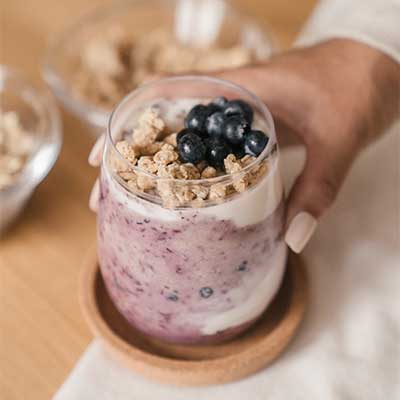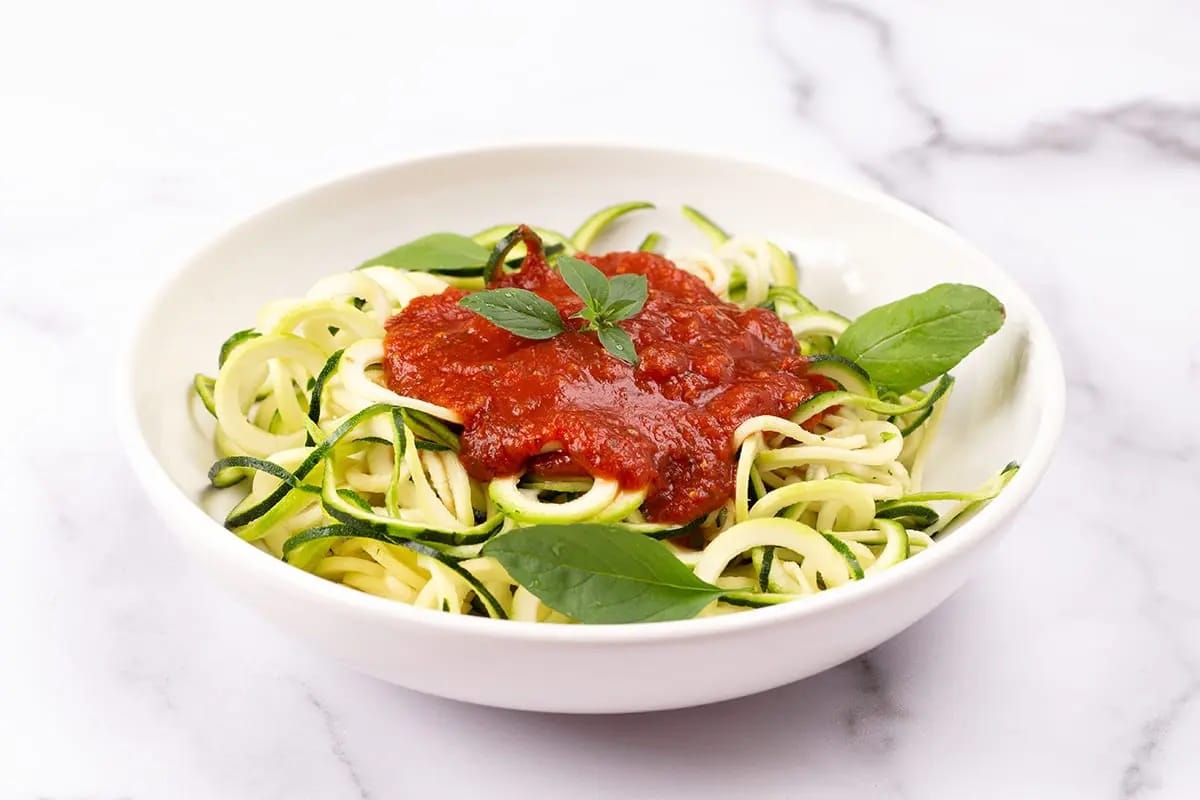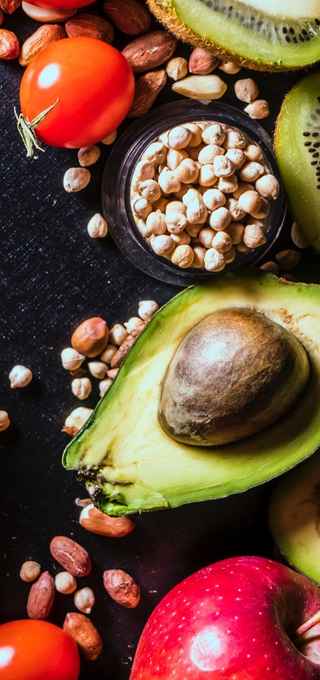Last Updated on May 31, 2024 by Nicole
In recent years, the ketogenic diet’s popularity has exploded. Everyone from Halle Berry to Tim Tebow has tried this super low-carb diet as a way to slim down and stay in shape. With all the media buzz about keto, you’re probably wondering what it is, if it’s worth trying, and how to get started. So today, we thought we’d give you some more background about keto, share some of our favorite low-carb recipes, and give you our thoughts on whether or not a keto diet plan may be right for you.
Background and History
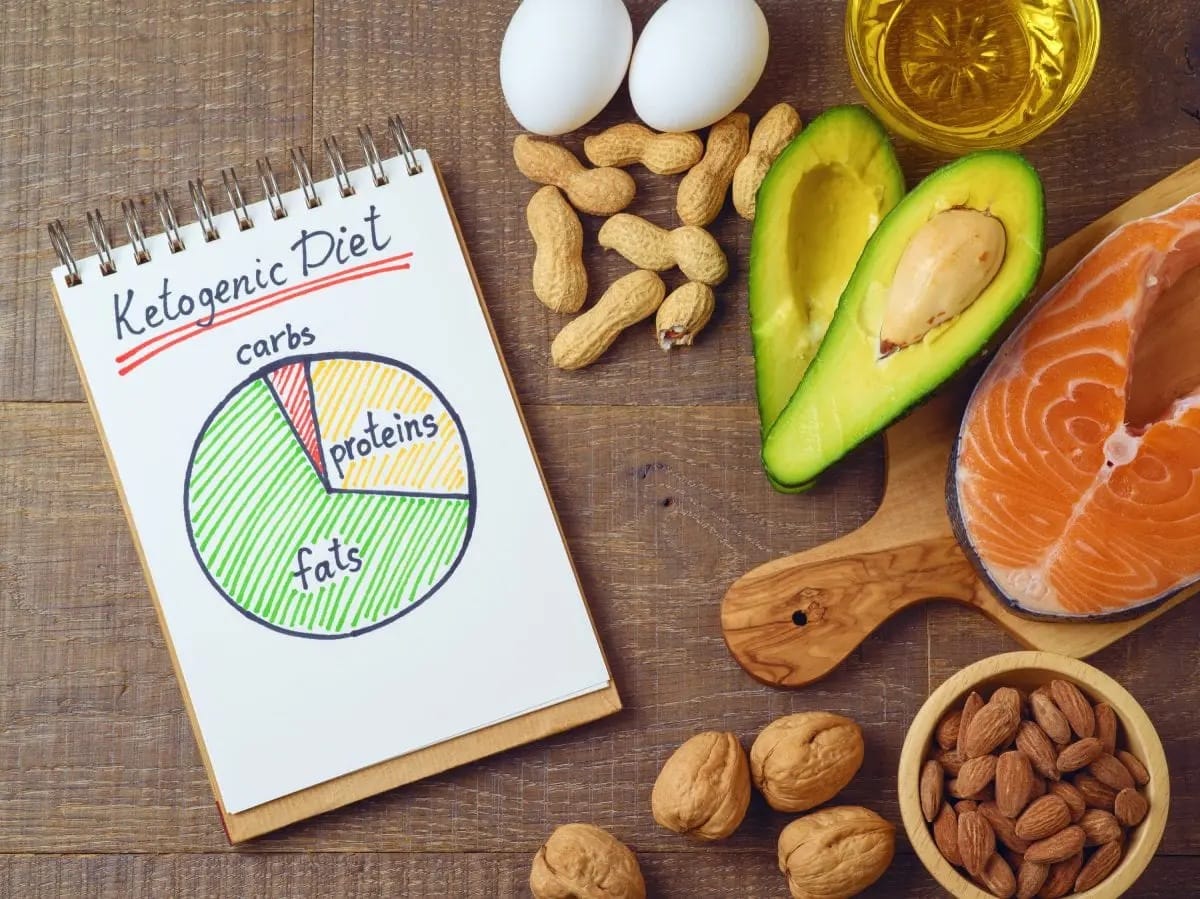
Believe it or not, the ketogenic diet wasn’t created for weight loss purposes. It started as a treatment for epilepsy in the 1920s. Doctors created the super low-carb diet, which helps control seizures, as an alternative to fasting. By severely limiting their carbohydrate intake, epilepsy patients were able to stay in a semi-fasted state that reduced their seizures without restricting their calories.
As drugs were developed to treat epilepsy, the ketogenic diet fell out of use until the 1990s. Charlie Abrahams, a toddler with severe drug-resistant epilepsy, and his parents are credited with repopularizing the diet. The toddler’s seizures improved so much on the ketogenic diet that Dateline did a special on it in 1994, and his parents made a movie about their experience in 1997.
Since then, the keto diet has been adopted by many as a weight loss regimen. Fans of the diet say it boosts weight loss, reduces appetite, balances blood sugar, and more. If you’re curious about this unique diet and interested in trying it out for yourself, keep reading to learn how to create your keto diet plan.
What Is a Keto Diet?
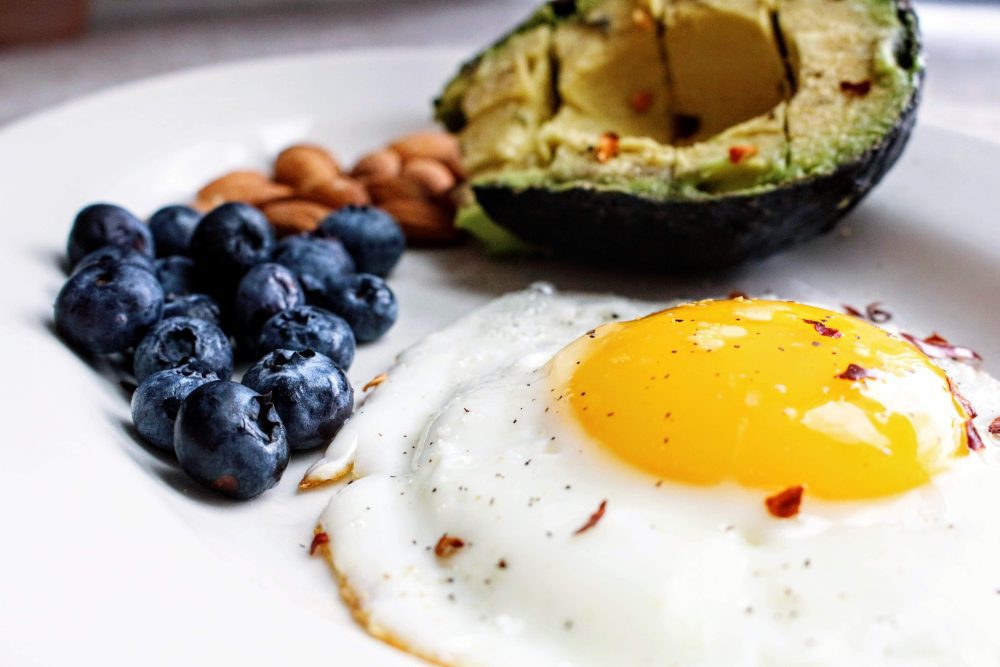
Keto is an extremely low-carb diet similar to the Atkins diet. Most keto dieters keep their carb intake between 20 and 50 grams a day. Eating such a low-carb diet causes the body to enter a metabolic state called ketosis in which the body burns stored fat instead of glucose. Proponents of the diet say that entering ketosis has several health benefits, including increased weight loss, improved energy, better sleep, less inflammation, fewer headaches, and more.
To keep their carb intake low enough, keto dieters have to cut out sugar, grains, beans, starchy vegetables, and most types of fruit. So what’s left?
What Can You Eat on a Keto Diet Plan?
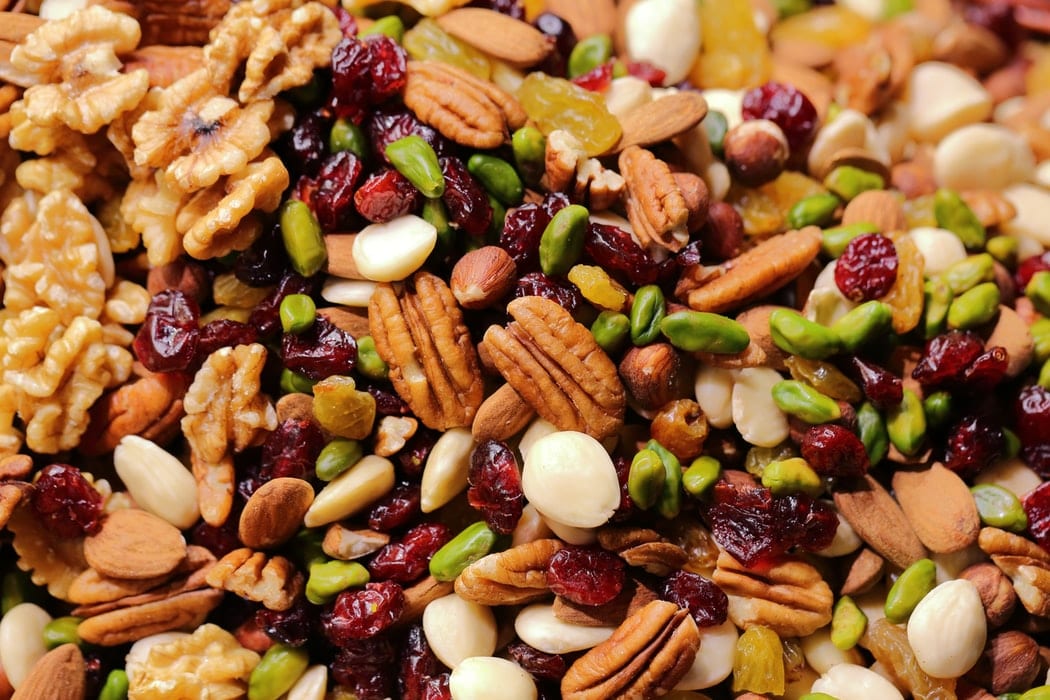
Although the list of things you have to cut out is long, there’s still plenty you can eat on this diet, including:
- Proteins like red meat, chicken, and fish
- Nuts and seeds
- Avocados
- Berries
- Oils like coconut and olive
- Eggs
- Cheese and dairy
- Sugar-free sweeteners such as stevia, erythritol, and xylitol
- Herbs and spices
- Low-carb flours such as coconut and almond flour
- Low-carb veggies like cauliflower and zucchini
One more thing you have to watch out for when you’re on a keto diet plan is that you’re eating foods in roughly the right proportions. You should aim to get around 70 to 80% of your calories from fat, 10 to 20% from protein, and 5 to 10% from carbs. We recommend using a nutrition calculator or recipe calculator to keep track of your daily food intake and make sure you’re hitting your macronutrient targets.
Now that you know what foods you can eat on a keto diet, let’s look at how to combine them into delicious, satisfying meals.
Breakfast Ideas
Many healthy breakfast dishes, such as bacon, eggs, and vegetable frittatas, are already keto. But other popular breakfast foods like toast, bagels, and muffins are not. So if your usual breakfast is something starchy like cereal, then you’ll have to swap it out for a keto breakfast.
Luckily, though, you don’t have to swear off carb-heavy foods like pancakes and oatmeal forever. By making a few changes to these classic breakfast recipes, you can continue to enjoy them even on a ketogenic diet.
Coconut Pancakes

Coconut pancakes are a great substitute for regular pancakes. They’re made with coconut flour, which is essentially dried coconut flesh, so they’re much lower in carbs than regular pancakes. One large pancake made with white flour has about 30 grams of carbohydrates, whereas a large coconut pancake only has 5.5 grams of carbs. So you can eat a whole short stack of these keto pancakes without breaking ketosis or feeling guilty.
Keto Oatmeal
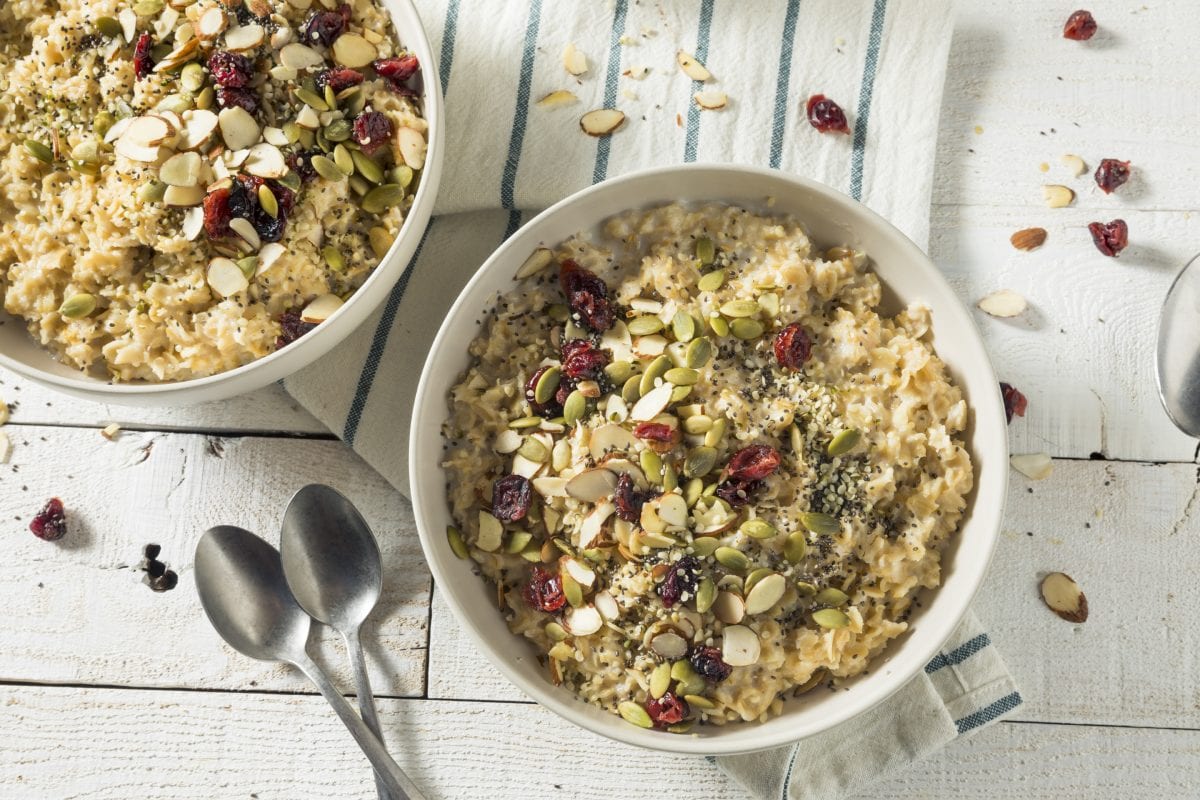
If you like to start your day with a warm, hearty bowl of oatmeal, you don’t have to give that up. You can make a keto version of oatmeal, which contains almond flour, shredded coconut, seeds like chia and hemp, and some milk to make it nice and creamy. The result is delightfully nutty, slightly sweet, rich, and thick, just like you’d expect oatmeal to be.
Compared to regular oatmeal, however, this version is healthier. It contains just 5 grams of net carbs per serving, whereas oatmeal contains a whopping 27 grams. The keto version also has significantly more protein. It contains 15 grams of protein per serving, while regular oatmeal only contains 5 grams.
This keto oatmeal is higher in calories than regular oatmeal, but it will likely keep you full for longer because of all the healthy fats and fiber it contains. Overall, it’s a great choice for breakfast that will power you through the morning until lunch.
Lunch Ideas
If your go-to lunch is a salad, you won’t have to make too many substitutions to turn it into a keto-friendly dish. When you swap out the croutons, beans, and high-carb veggies like carrots for lower-carb toppings, then you’ll be able to enjoy your salad without breaking ketosis.
If you’re more of a sandwich person, you’ll have to make some significant changes to your packed lunches. Bread is pretty high in carbs at 14 grams per slice, so you’ll either have to switch it out for keto bread or try one of the breadless, sandwich-inspired recipes below.
Italian Sub Rollups
Italian sandwiches are a favorite at lunchtime, but they’re high in both calories and carbs. The average Italian sub has about 570 calories and 44 grams of carbohydrates. Just by skipping the sub roll, though, you can save around 330 calories and bring the carbohydrates down to just one net carb.
To make an Italian sub without the bread, grab one slice each of mortadella, soppressata, salami, and pepperoni, and add your favorite sandwich toppings like banana peppers, mayonnaise, and black olives. Layer the meat on top of the other and place your toppings in the center. Then roll everything up and secure it with a toothpick.
You can do this with any lunch meats you like to create a super satisfying packed lunch.
Shrimp Avocado Lettuce Cups
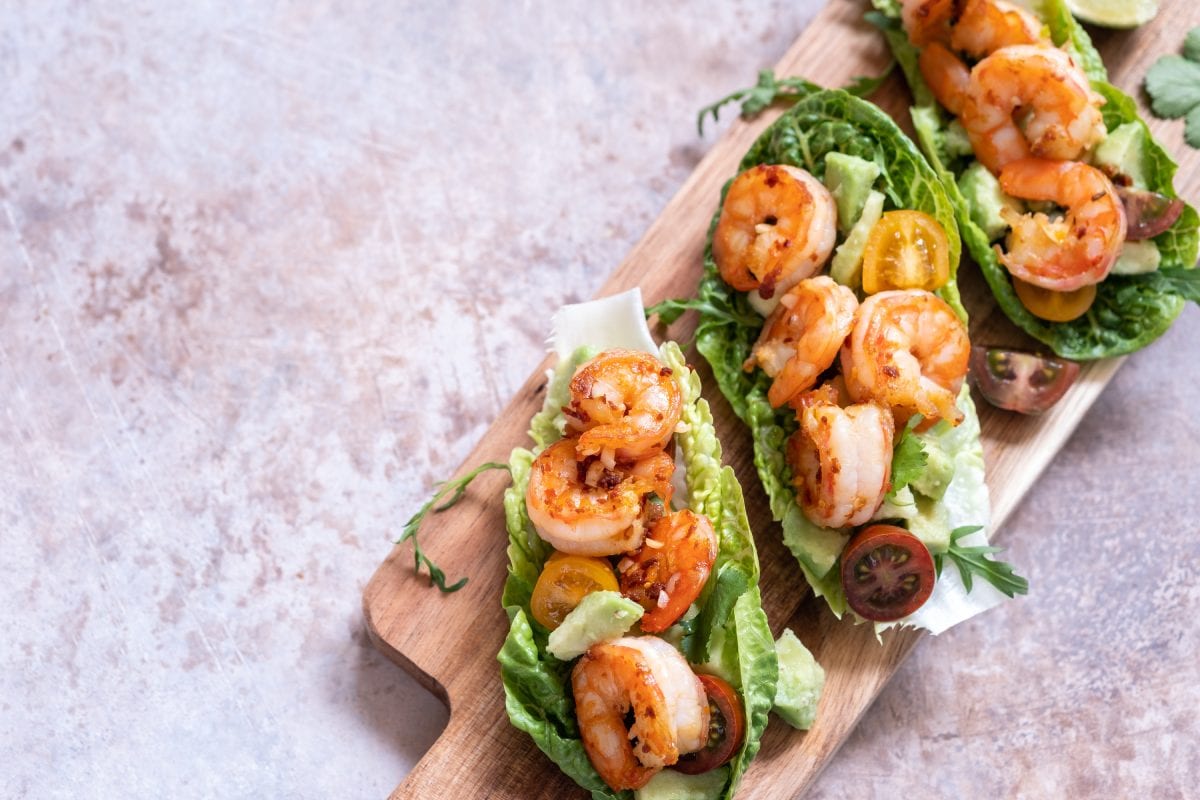
Although shrimp salad sandwiches are delicious, they’re on the heavy side. Shrimp salad is usually made with lots of mayonnaise and served on a big sub roll. The average sandwich clocks in at 400 to 600 calories and can have anywhere from 30 to 50 grams of carbs depending on what type of bread is used.
You can make a lighter, keto-friendly version of this classic sandwich by swapping out the bread for a butter lettuce cup and replacing the mayonnaise with a simple olive oil vinaigrette. It’s the perfect meal to enjoy on a hot summer day and has fewer calories (in fact, less than half the carbs) than a regular shrimp sandwich.
Dinner Ideas
Chicken or fish with a side of low-carb veggies is an easy keto dinner, but it can get pretty boring after a while. If you’re looking for more interesting dinner ideas, then check out the recipes below.
Garlic Shrimp Zoodles
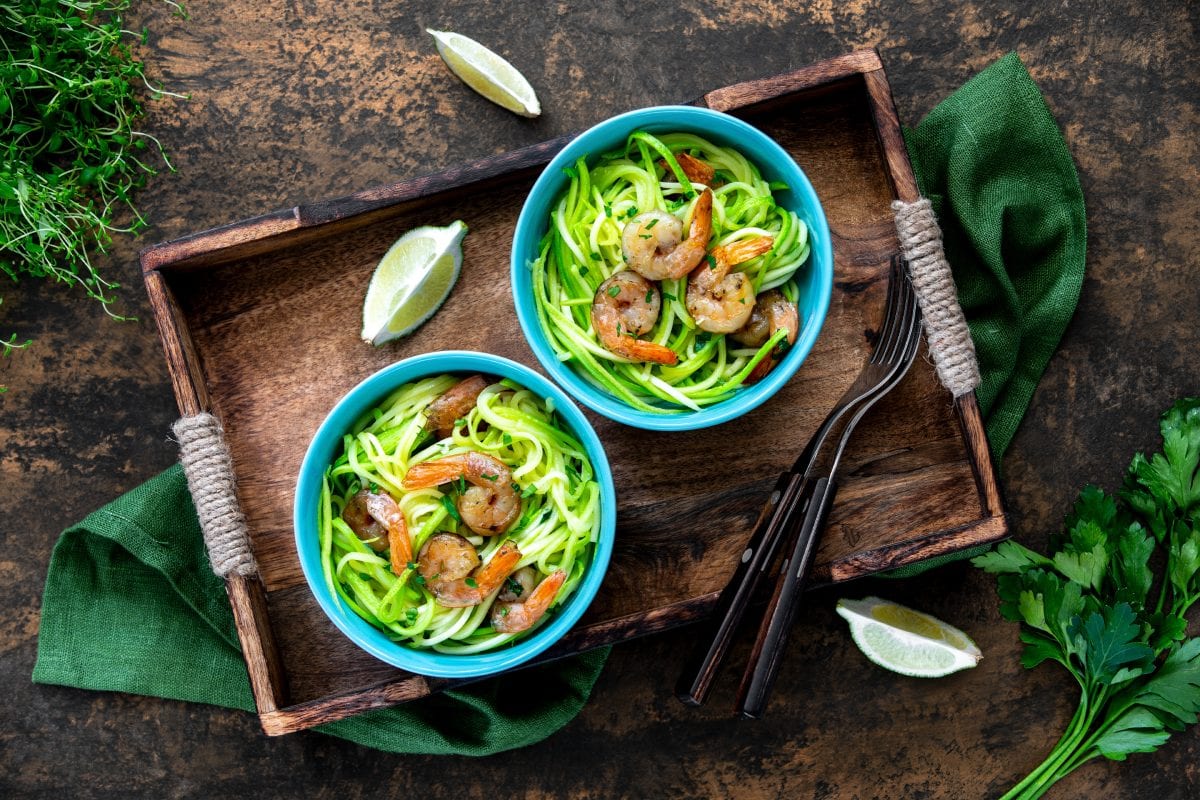
Think you can’t have pasta dishes on a keto diet? Think again! You can make indulgent dishes like garlic shrimp scampi with spiralized zucchini noodles to keep the carbs and calories down. A typical plate of shrimp scampi with pasta is nearly 800 calories and 90 grams of carbs. But the keto-friendly version has just 300 calories and 13 grams of carbs, making it the perfect diet dinner.
Chicken Fried Cauliflower Rice
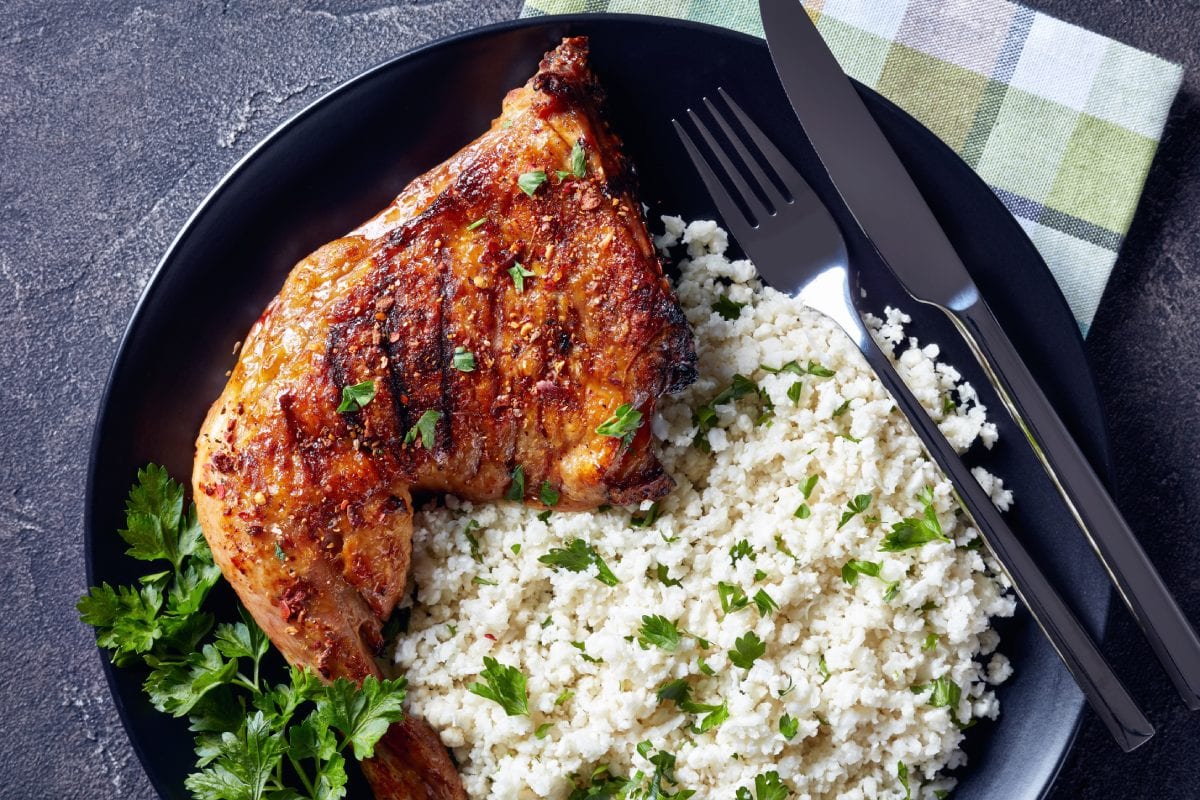
Cauliflower is a keto dieter’s best friend. There are so many things you can do with it, from making a creamy puree that imitates mashed potatoes to grating it in the food processor to make “rice.” You can even transform it into pizza crust or cheesy grits!
This ketogenic dinner recipe, chicken fried cauliflower rice, uses cauliflower to replace the rice and low-carb veggies like broccoli and mushrooms to replace the starchy peas and carrots. These simple swaps bring the carb count of the fried rice down from 45 grams per serving to just 7.5 grams, making it a lighter, healthier version.
Dessert Ideas
Believe it or not, you can still satisfy your sweet tooth on a ketogenic diet. Even though you can’t have regular sugar, there are several sugar-free alternatives like erythritol and monk fruit sweetener that you can use to make delicious keto desserts.
Low-Carb Cupcakes
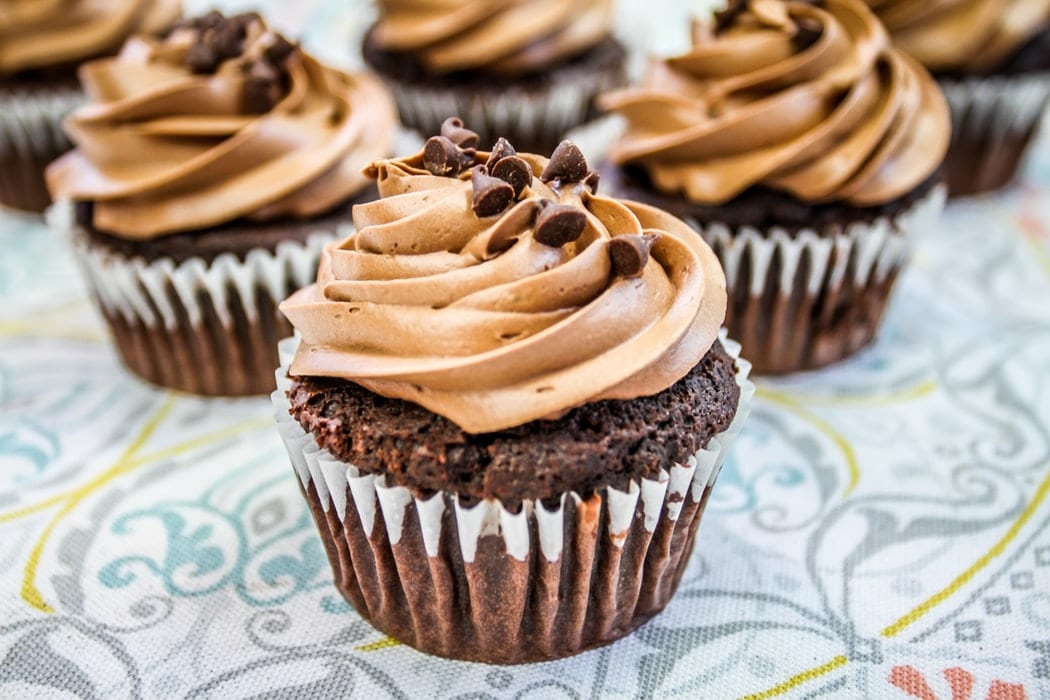
You probably thought you couldn’t have cupcakes on a keto diet plan. But fortunately, you’re wrong! With a few smart substitutions, you can make muffins, brownies, and even cupcakes completely keto.
Most keto cupcakes use erythritol instead of sugar and coconut flour instead of white flour, both of which save a lot of carbs and calories. Keto cupcakes typically have around 7 grams of carbs and 80 calories with frosting. To put that number in perspective, an average frosted cupcake made with white sugar and flour has around 30 grams of carbs and 170 calories. So if you’re going to have a sweet treat, keto cupcakes are the better option.
Keto Cheesecake Fat Bombs
Fat bombs are the keto version of energy balls. They’re primarily made of healthy, satiating fats like coconut butter, cacao butter, and peanut butter, which is how they got their name.
You can make keto fat bombs in any flavor you want from pecan pie to chocolate and peanut butter, but we’re particularly fond of cheesecake fat bombs. They’re made with cream cheese, coconut oil, and heavy cream, so they’re super creamy and delicious.
Financial Benefits
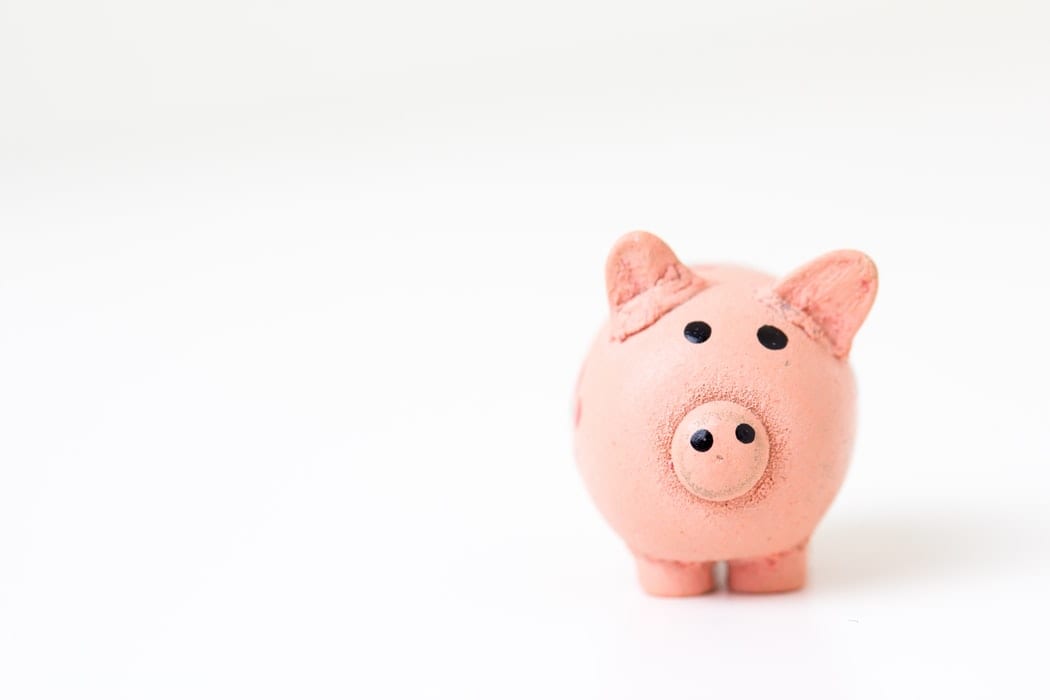
Going on a keto diet plan can help you save money. Because the diet is so restrictive, you may find it easier to cook your meals at home rather than eat out. Restaurants mark up their food by an average of 300%, so eating out less will significantly reduce your monthly food spending.
If you meal prep, you stand to save even more money. Meal prepping is one of the best ways to cut down your grocery budget because it helps you avoid impulse purchases and food waste. By coming up with a grocery list of just what you need to get through the week, you’ll be able to use up everything in your fridge and avoid impulse buys like expensive, packaged keto snacks.
To maximize your savings, you can shape your weekly menu around cheap seasonal produce, sales, and coupons. If you can get some of the most expensive items in your cart like meat, cheese, and veggies on sale, then your grocery spending will shrink while you’re on a keto diet plan.
Health Benefits
The ketogenic diet hasn’t been studied extensively yet, but some of the initial studies have turned up promising results. In the section below, we’ll discuss some of those studies to give you a better sense of how the keto diet may improve your health.
May Help with Weight Loss

One of the reasons why the keto diet has become so popular is because it’s supposed to help with weight loss. There is some evidence that ketogenic diets are better for weight loss than diets high in carbs, at least at first.
One study followed keto-style dieters and low-fat dieters over a year to compare their weight loss progress. In the first six months, people on the ketogenic diet lost more weight. But over the next six months, there was no significant difference in weight loss between the two groups, suggesting that the keto diet loses its weight loss advantage over time.
Still, seeing results quickly is motivating and may encourage you to stick with dieting. So even if the effects only last for a few weeks or months, switching to a keto diet to kickstart your weight loss may make sense for you.
May Help Control Blood Sugar
Eating keto can help control blood sugar, especially in patients with type 2 diabetes. Studies have shown that eating a diet very low in carbohydrates leads to weight loss and better glycemic control in diabetics. Even if you don’t have diabetes, restricting your carbs can prevent blood sugar spikes and keep your blood sugar levels more stable, leading to fewer drops in energy.
May Reduce Migraines

The ketogenic diet may be useful in treating both migraines and cluster headaches. In one study, patients suffering from migraines showed significant improvement when eating a ketogenic diet. Once they returned to a standard diet, their symptoms worsened, suggesting that the ketogenic diet may be an effective therapy for migraines. Low-carb diets have also been shown to improve symptoms in patients with cluster headaches, one of the most severe types of headaches.
Helps Treat Epilepsy
The keto diet plan was initially developed to treat patients with epilepsy, and studies have shown that it’s very effective. Over half of all children who go on the diet experience a reduction in seizures and ten to fifteen percent of kids become completely seizure-free. The diet also has similar effects on adults. Nearly half of all adults who try a low-carb diet experience a reduction in seizures within a few months.
May Benefit Patients with Neurological Disorders

Because the ketogenic diet is so effective at treating epilepsy, researchers are investigating whether this style of eating may help people with other neurological disorders, such as Alzheimer’s and Parkinson’s. Initial research has shown some positive results, but more research is needed.
One thing researchers have discovered is that keto diets may improve memory and cognitive function in Alzheimer’s patients. Alzheimer’s disease seems to reduce the brain’s ability to utilize glucose, which is its main source of energy. Eating a ketogenic diet may reduce symptoms in Alzheimer’s patients because it causes the body to produce ketones, which are an alternate source of energy that the brain can utilize.
Following a keto diet plan may also benefit people with Parkinson’s. After following a ketogenic diet for 28 days, Parkinson’s patients showed a significant improvement in symptoms.
The keto diet may have neuroprotective effects in healthy adults too. Eating a keto diet may decrease your risk of developing Alzheimer’s disease. Initial studies have shown that fatty acids, which the keto diet is rich in, protect against Alzheimer’s.
Variations of the Keto Diet
Since keto became popular in the 1990s, several variations of the diet have been developed—some good, and some bad. Some alternatives to the standard keto diet, like the cyclical diet, incorporate more carbohydrates and are easier to stick to. But others, like the boiled egg diet, are even more restrictive than standard keto and may be dangerous for your health. Here’s an overview of some of the most common variations of the keto diet and whether or not they’re healthy.
Cyclical Diet
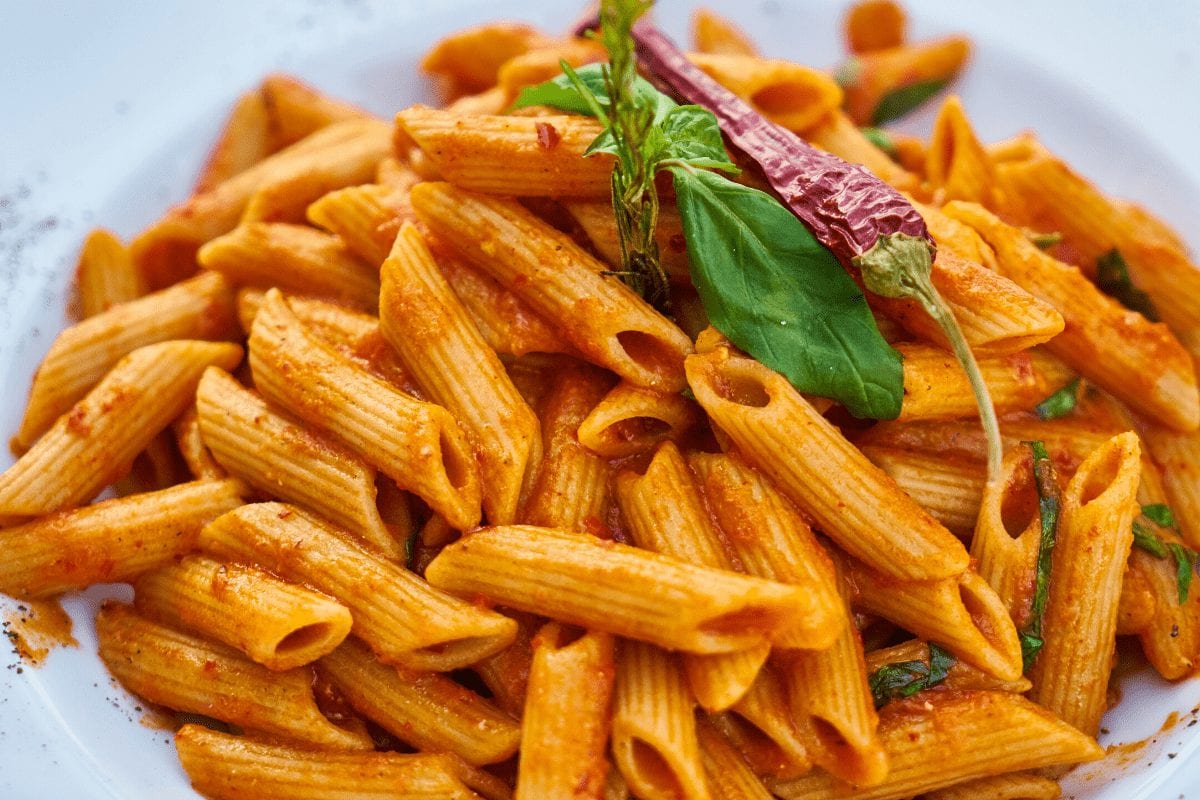
The cyclical keto diet allows you to have two high-carb days a week followed by five ketogenic days. It’s called the cyclical diet because it causes you to cycle in and out of ketosis. This diet is much easier to stick to than the standard keto diet because it allows you to eat foods like fruit, sweet potatoes, and pasta in moderation. It also gives you more vitamins and minerals because you’re eating a wider range of foods.
There’s also evidence that having a few higher carb days a week can increase your exercise performance and help you build muscle. So if getting toned and gaining muscle is just as important to you as reaping the benefits of ketosis, then you may want to try out this diet.
Targeted Diet
The targeted diet is similar to the cyclical diet. But instead of having full days of high-carb eating, people on targeted diets have starchy foods like white rice or potatoes right before their workouts. The targeted diet allows you to enjoy a little bit more variety in your meals while still keeping you in ketosis, so it may be a good option if you find the standard keto diet too restrictive.
Boiled Egg Diet
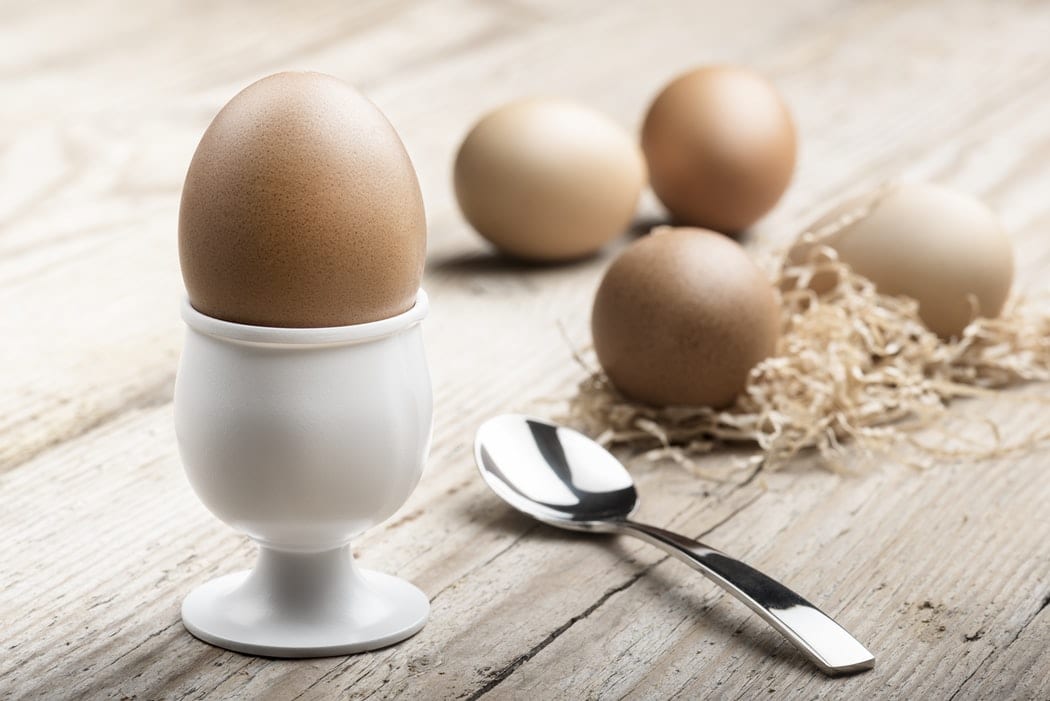
The egg diet is little more than a crash diet and is something you should stay away from. The most restrictive version of this diet calls for you to eat just eggs and water for two weeks, which is unhealthy and even dangerous. You won’t be getting enough calories, vitamins, or minerals by eating just eggs, so it’s not advisable to try it even for short periods.
Other variations of the boiled egg diet allow you to have a few veggies, fruits, and sources of lean protein like chicken and fish with your eggs. But overall, the diet isn’t sustainable and will probably only lead to temporary weight loss.
Vegan Keto Diet
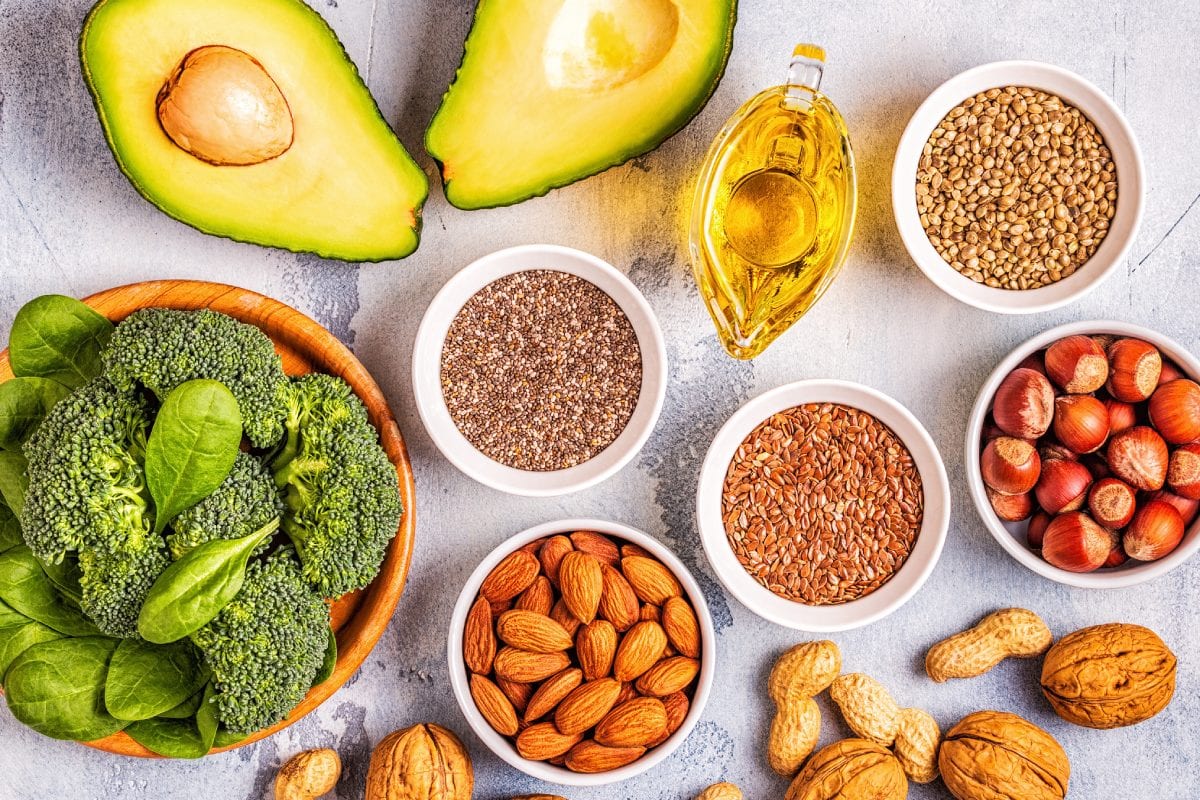
Some people have started following the vegan keto diet, which eliminates staples like eggs, dairy, and animal proteins from the standard keto diet and adds in vegan proteins like tofu and tempeh. Some nutritionists feel that combining vegan and keto, two diets that are restrictive in their own right, may have negative health consequences. As a vegan on a keto diet, you may be low in essential vitamins and minerals and experience symptoms like fatigue. It’s much harder to execute this diet in a healthy way than other low-carb diets, so if you do want to try it, make sure that you check in with your doctor regularly.
Our Thoughts
Before you hop on the bandwagon and try a keto diet plan, we have a few words of caution. The keto diet is very restrictive and involves cutting out entire food groups, so it’s important to consult your doctor before you try it or any of its variations. Depending on your health status, your doctor may advise you not to go on keto. People who have cardiovascular disease, for example, should stay away from the keto diet because it’s high in saturated fat, which could worsen their condition. Even if you don’t have any diagnosed medical conditions, you should still be monitored while you’re on the diet to make sure you’re not becoming deficient in any vitamins and minerals.
Another point of concern about the keto diet is that there are no long-term studies on its safety. It’s possible that consuming such high levels of fat may have negative effects on cholesterol and heart health over time. Other diets can help you lose weight without this potential risk, so it may be worth looking into other options.
Overall, though, the keto diet is a compelling weight loss option that’s worth giving a second look. When done with the supervision of a doctor, it can help you shed excess pounds, control your blood sugar, and put you on the path toward a better lifestyle.
12 Top Keto Drink Recipes
Try our new keto drinks recipes! The ketogenic…
Beginner’s Guide to Easy Keto Meal Prep (Recipes Included)
The ketogenic diet (or keto diet) has become…
5 Easy Keto Recipes for Every Meal of the Day
As a registered dietitian, I am often asked…
